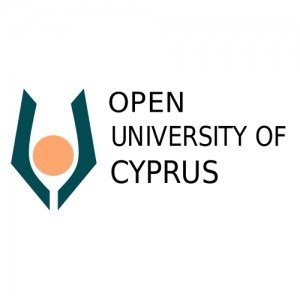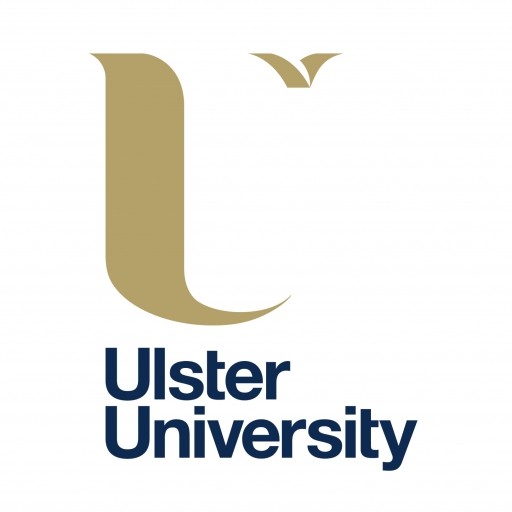Photos of university / #utsengage
Environmental Engineering Management at the University of Technology Sydney (UTS) is a comprehensive and innovative programme designed to equip students with the knowledge and skills necessary to address the complex environmental challenges faced by modern society. This degree merges the core principles of environmental science, engineering, and management, providing graduates with a multidisciplinary approach to sustainable development, resource management, and environmental protection. Through a combination of coursework, practical labs, industry projects, and internships, students gain hands-on experience in designing and implementing environmental solutions across various sectors, including water and wastewater management, waste treatment, and pollution control.
The curriculum emphasizes critical thinking, problem-solving, and leadership skills, preparing graduates to take on roles in government agencies, consulting firms, industries, and non-governmental organizations focused on environmental sustainability. Core subjects include environmental systems analysis, environmental legislation and policy, project management, and sustainable engineering practices. Advanced modules delve into topics such as environmental impact assessment, renewable energy integration, and green infrastructure.
UTS’s commitment to innovation and industry engagement ensures that students are exposed to the latest technologies and practices in environmental engineering management. The programme fosters collaboration with industry partners, offering opportunities for real-world projects and internships that enhance employability and professional development. With its strategic location in Sydney, a vibrant city known for its focus on sustainability and environmental initiatives, students benefit from a thriving ecosystem of environmental innovation and research.
Graduates of this programme are well-prepared to pursue careers in environmental consultancy, project management, urban planning, or further research and academic pursuits. They will possess the technical expertise and managerial skills needed to lead initiatives that promote environmental sustainability, adapt to changing regulations, and develop innovative solutions for safeguarding the environment. Overall, the Environmental Engineering Management programme at UTS embodies a forward-thinking approach that supports sustainable progress and responsible management of natural resources for a better future.
The Bachelor of Environmental Engineering Management at the University of Technology Sydney offers students a comprehensive education that combines engineering principles with environmental management strategies. This innovative program is designed to prepare graduates to meet the growing global demand for sustainable solutions in various industries, including infrastructure, manufacturing, and resource management. Throughout the course, students will develop a solid understanding of environmental systems, pollution control, waste management, and sustainable design practices, enabling them to make informed decisions that balance economic development with environmental preservation.
The curriculum integrates core engineering knowledge with specialized topics such as water resources management, renewable energy, environmental policy, and lifecycle assessment. Students will engage in practical laboratory work, project-based learning, and industry placements to gain hands-on experience and apply theoretical concepts in real-world settings. Emphasizing teamwork and critical thinking, the program encourages students to analyze complex environmental challenges and develop innovative solutions that are economically viable and environmentally sustainable.
Additionally, the program offers opportunities for international exchange, internships, and collaboration with industry partners, fostering a global perspective and professional network. Graduates will be equipped to work in diverse roles such as environmental consultants, project managers, sustainability advisors, and policy makers. They will have the skills to assess environmental risks, develop sustainable engineering projects, and contribute to policy development that promotes environmental stewardship.
The university's state-of-the-art facilities and research centers support student learning and research activities, ensuring graduates are well-prepared for careers in both industry and academia. The Bachelor of Environmental Engineering Management at UTS emphasizes practical skills, ethical considerations, and innovative thinking, making it an ideal choice for students committed to making a positive impact on the environment and society.
- UTS recognised bachelor level, or an equivalent or higher qualification, or filed other evidence of general and professional credentials that demonstrates possibility to pursue graduate studies. Qualification for admission does not guarantee offer of a place. International students: To obtain a student visa to study in Australia, international students must enroll complete time and on campus. Australian student visa regulations also need international students studying on student visas to finish the class over the standard full time interval. Students can expand their classes only in exceptional conditions.
Want to improve your English level for admission?
Prepare for the program requirements with English Online by the British Council.
- ✔️ Flexible study schedule
- ✔️ Experienced teachers
- ✔️ Certificate upon completion
📘 Recommended for students with an IELTS level of 6.0 or below.
The Master of Environmental Engineering Management at the University of Technology Sydney offers a range of study options to accommodate diverse student needs, including full-time, part-time, and pathways for industry professionals. Tuition fees for international students are approximately AUD 37,000 per year, with domestic students benefiting from subsidized rates under the Australian Government's Commonwealth Supported Places (CSP) scheme. These fees are indicative and subject to change annually; therefore, prospective students should consult the university's official website for the most current information.
Financial assistance is available through various scholarships, grants, and bursaries offered specifically for postgraduate engineering students. The university provides merit-based scholarships that can significantly offset tuition costs, and priority is often given to students demonstrating academic excellence and leadership potential in environmental management fields. Additionally, students may access government financial aid options, such as HECS-HELP for eligible Australian domestic students, which allows deferred payment of tuition fees until after graduation when income reaches a certain threshold.
Many students fund their studies through personal savings, family support, or educational loans. The university also collaborates with financial institutions to facilitate student loan programs tailored for international students, including private educational loans, although these options often entail specific repayment terms and interest rates. For international students, budget planning should include living expenses, accommodation costs, health insurance (Overseas Student Health Cover), and other personal expenses, which can vary depending on lifestyle and location.
Part-time students often combine their studies with employment, whether within the environmental sector or in unrelated fields, to support their educational pursuits. The university's online and flexible learning options enable students to balance work commitments with their academic schedule more conveniently. Students are encouraged to explore external funding opportunities, including industry sponsorships, employer tuition reimbursement programs, and external scholarships offered by environmental organizations or industry bodies.
Overall, financing a degree in Environmental Engineering Management at UTS involves a combination of government support, university scholarships, personal funds, and external financial aid options. Planning and early application for scholarships and financial assistance can ease the financial burden and make postgraduate studies more accessible. Prospective students should thoroughly research all available funding avenues and consult the university’s financial aid services for personalized advice and up-to-date information.
The Master of Environmental Engineering Management at the University of Technology Sydney (UTS) is a postgraduate program designed to prepare students for leadership roles in the field of environmental engineering and management. This program aims to equip graduates with advanced knowledge and practical skills necessary to address complex environmental challenges, including sustainable development, pollution control, waste management, water resources management, and environmental policy compliance. The curriculum integrates technical engineering principles with management strategies, enabling students to oversee projects, lead teams, and develop innovative solutions within environmental sectors.
Students enrolled in this program will engage in core courses that cover environmental systems, environmental systems analysis, environmental management systems, and sustainable engineering practices. Electives allow for specialization in areas such as water engineering, waste management, or environmental law and policy, providing a tailored educational experience aligned with career goals. Additionally, the program emphasizes real-world application through industry placements, case studies, and project work, fostering practical skills and professional readiness.
The program is designed for engineering graduates, environmental scientists, or related professionals seeking to advance their careers into managerial roles. It is structured to be completed in one to two years of full-time study, with flexibility for part-time students. UTS's focus on interdisciplinary learning, combined with access to industry partnerships and cutting-edge research facilities, ensures graduates are well-prepared to meet the demands of the evolving environmental landscape.
Career outcomes for graduates of this program include roles such as environmental manager, sustainable development coordinator, environmental consultant, project manager, and policy advisor. UTS's strong industry links facilitate networking opportunities, internships, and employment prospects, empowering graduates to make significant contributions to environmental sustainability and management within government agencies, consulting firms, or private industry.
The university also emphasizes innovative teaching methodologies, including collaborative projects, experiential learning, and industry engagement, to enhance learning outcomes. The program adheres to high academic standards, with qualified faculty members recognized for their research and industry expertise. Students benefit from state-of-the-art facilities, comprehensive learning resources, and supportive academic services aimed at fostering academic and professional success in the field of environmental engineering management.










